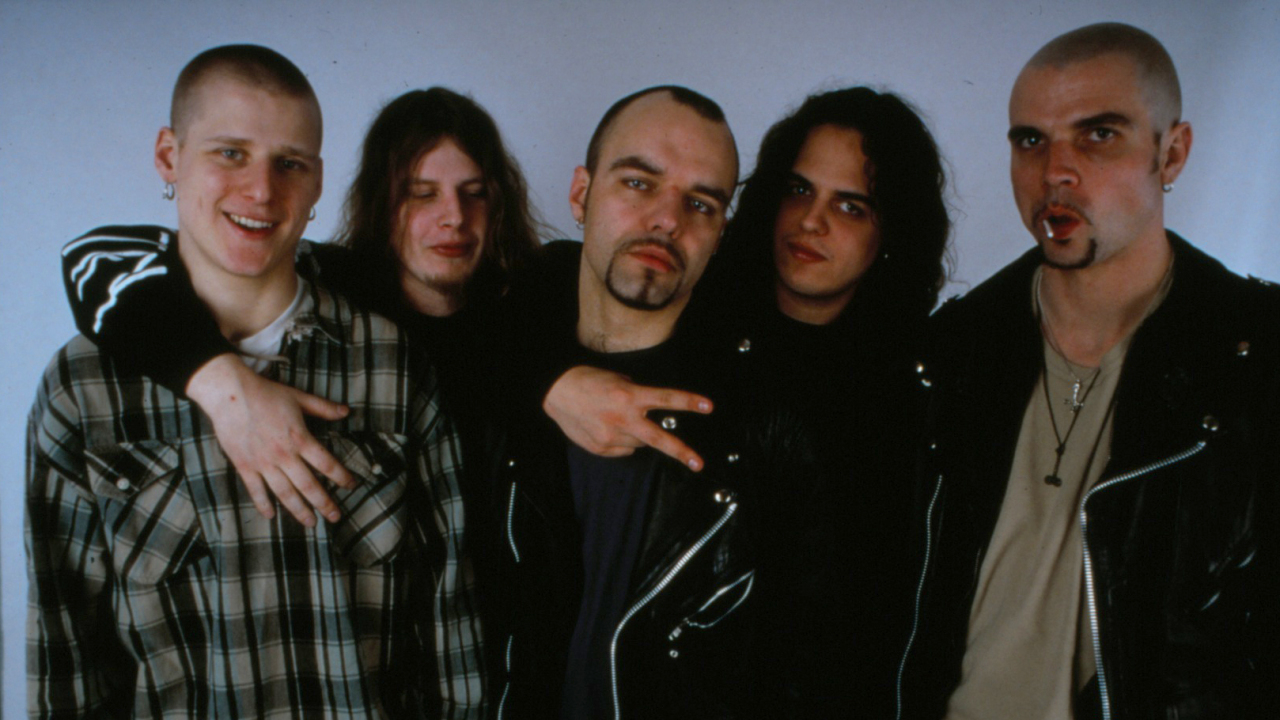Take away the strongholds of Britain and the USA and there is a pretty compelling argument that Sweden has produced the most notable rock and metal bands. From the Scandi-rock of Hellacopters and Backyard Babies to the massively influential melodic death metal of At The Gates and In Flames that put Gothenburg on the map, via the varied punk scene that spawned everyone from Refused and Raised Fist to Millencolin, it’s an impressive list.
One band that are a usually ignored anomaly are Misery Loves Company, the Uppsala-based two-piece consisting of multi-instrumentalist Örjan Örnkloo and the enigmatic vocalist Patrick Wiren. Despite their isolated surroundings the duo found their way to a deal with Earache Records and released a self-titled debut in 1995. This was at a time when the popularity of Nine Inch Nails and the industrial uprising was spewing out many a pale copycat act, MLC though were a far nastier proposition. Melding the influence of Ministry’s steel-plated noise, the extreme metallic blasting of labelmates Napalm Death and Wiren’s embittered croon that resembled Alice In Chains’ Layne Stayley at his most depressed, this sounded like a new dawn in extreme music. Industrial metal taken to its next level. It’s summed up perfectly in opening track My Mind Still Speaks, which manages to be terrifying, catchy, futuristic and oddly dirt stained all at once.
The band headed out on as many tours as they could get themselves onto, opening for Clawfinger, Warrior Soul, Slayer and Fear Factory before second album, 1997’s Not Like Them¸ upped the ante even more.
Songs like Feed The Creep, Taste It (Imaginary Gun) and A Million Lies were incredibly bleak, dark and contained not a jot of hope or warmth. Yet, buried underneath the mechanical grinding and the hate-filled hopelessness of the lyrics, was a definite understanding of melodic nous and dynamic control. Their cover of XTC’s Complicated Game provided the signpost to where Misery Loves Company were looking to take their sound.
The band co-headlined the LA2 at the end of the year with Dub War on a bill showcasing the best of Earache’s roster – they then opened for Machine Head on a brilliant line-up alongside fellow Swedes Entombed. In this ultra metal, more traditionally-minded environment they stood out like a sore thumb. It may have been this outsider status that led to the band vanishing for three years to return with their biggest risk, final album Your Vision Was Never Mine To Share. From the second the title track’s acoustic guitar snakes from the speakers it’s obvious the crushing metal and industrial wall of noise had been replaced by a more restrained and ambient sound. It recalled the electro rock of Depeche Mode, a cover of The Cure’s The Drowning Man was the perfect fit for the new look Misery Loves Company. It was their shot for the gold, but, although a decent record, it was too soft for metal lovers and too moribund for the new fans that were arriving on the rock scene thanks to the technicolour bounce of Linkin Park and Limp Bizkit.
The gamble had backfired and the band split, never to be seen or heard from again. But for a short moment in time Misery Loves Company went toe-to-toe with some of the biggest names in metal, and ushered in some new and unusual sounds. They may be gone, but those albums shouldn’t be forgotten.

